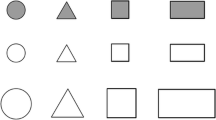Summary
The author tries to specify a philosophical attitude which could be considered a form of Positivism, but this does not necessarily mean that it coincides with the doctrine of Auguste Comte or with that of the Vienna Circle.
In order to facilitate the exposition the author formulates eight theses whose abrupt character is merely a consequence of the manner of presentation and by no means a manifestation of dogmatism.
Eachdatum presents itself as finite experience (1) which is organized with the help ofsymbols, either on the level of perception or on the level of language (2). Inside the perception itself a reduction of experience which is essentially pragmatic first constitutes thephenomena (3). Theobject which is constituted by science on the basis of the phenomena is merely structural and always delimited (4). Its constitution is unceasingly revisable and it never corresponds to an alleged essence of reality.
What is here called ‘dialectic’ never consists in a set of rules governing a movement of phenomena, objects, or ideas; it is a general, historical movement of experience itself, taken as a whole, and the specific movement of the symbolic statements which inform it. One should not confuse it with a kind of general logic, nor with a so-called science of totalities (5).
Logic explains the rules of the symbolic systems (6), andscience is the mediate determination of objects by means of the symbolism, and is not an immediate determination of reality (7). It constructs coherent and effective models of phenomena.
As far asphilosophy is concerned, it wishes to interpret experience as a totality, not-withstanding experience's finitude as datum (8). Thus it is radically distinguished from science in that philosophy does not intend to construct models, but to explain the meanings of the phenomena and, in general, of experience. That is why the category of truth taken in a rigorous sense does not apply to philosophy's statements.
Similar content being viewed by others
Author information
Authors and Affiliations
Rights and permissions
About this article
Cite this article
Granger, G.G. Propositions pour un positivisme. Man and World 2, 386–409 (1969). https://doi.org/10.1007/BF01252572
Issue Date:
DOI: https://doi.org/10.1007/BF01252572




